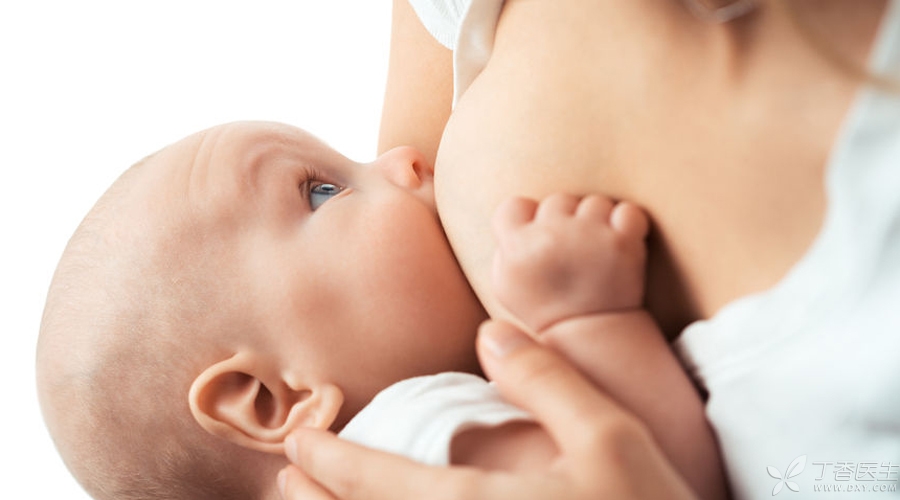
Breast milk is the most natural and safe food for mothers and babies, but there are always too many unreliable [taboos] on the way to breast milk: mothers will become yogurt after exercise, mothers will not be able to feed milk [poisonous] when angry, babies will not be able to feed jaundice, babies will not be able to feed diarrhea… Apart from mothers’ own wishes, is what really not able to feed?
Dr. Clove found Mr. Zhang Zheng to share with everyone the special situation that breast-feeding must be stopped from a medical point of view.
Mothers in these 6 situations are not suitable for feeding their babies.

1. Among the virus infections, only mothers infected with HIV (AIDS) and HTLV-1 cannot breastfeed.
There are few other viral infections that must stop breastfeeding. For mothers with cytomegalovirus infection, if the baby is a healthy full-term baby, it is completely possible to breastfeed normally. Breastfeeding is not recommended if the baby is premature or has a sick baby, and the mother is acutely infected with cytomegalovirus.
2. Other common viral infections, such as herpes simplex and herpes zoster viruses, need to suspend breastfeeding if they are in the nipple-areola region and affect the baby’s milk retention. Mothers infected with chickenpox within 5 days before delivery or 48 hours after delivery need to be isolated from their babies because the chickenpox virus will be transmitted to their babies through contact, not through milk.
3. Infected with tuberculosis without treatment period, the baby can be breast-fed after receiving treatment for two weeks.
4. Therapeutic radioisotopes and the need to suspend breast milk when mothers receive anti-metabolic or chemotherapy drugs.
5. Vaccination with smallpox vaccine and yellow fever vaccine is absolutely prohibited. Breastfeeding must be stopped immediately once vaccinated.
6. Mothers who take drugs, drink alcohol and smoke also have to give up the right to nurse their babies.
Babies in these two situations are not suitable for breast feeding.

1. Phenylketonuria can be partially breastfed, but the level of phenylalanine in blood sugar must be monitored to adjust breastfeeding accordingly to maintain a safe level.
2. Infantile galactosemia, also known as lactose intolerance, is a congenital metabolic disorder in which babies cannot use galactose, which is a component of lactose in breast milk and is therefore a contraindication to breastfeeding.
These situations should be at ease and you can continue to breastfeed.

1. Mastitis
Mastitis can occur at any stage of breast-feeding and is also the most common reason for failure of breast-feeding. In fact, mastitis itself does not need to stop parent-feeding, but encourages higher frequency parent-feeding. Even if drugs are used in treatment, breast-feeding can continue as long as they are used safely during lactation.
2. Hepatitis B
Both the World Health Organization and the U.S. CDC have made it clear that there is currently no evidence that breast-feeding by hepatitis B mothers will increase the chance of infection in infants. It is recommended that mothers with hepatitis B should breast-feed. China’s < < Clinical Guidelines for the Prevention of Mother-to-Child Transmission of Hepatitis B Virus > > and < < Guidelines for the Prevention and Treatment of Chronic Hepatitis B > > also recommend that newborns can accept breast-feeding after regular injection of hepatitis B immunoglobulin and hepatitis B vaccine.
3. Chronic diseases
Such as depression, diabetes, heart disease, hypertension, hyperthyroidism or hypothyroidism, lupus erythematosus, epilepsy, under close medical follow-up can realize exclusive breast milk or partial breast milk feeding
4. Common diseases such as colds and diarrhea
During breast-feeding, mothers not only need to take good care of their babies, but also need to take good care of their own bodies. They often cannot avoid common diseases such as colds and diarrhea. They must not give up breast-feeding easily because of this. Colds and diarrhea will not spread because of breast-feeding. They can continue breast-feeding by communicating with doctors about the needs of breast-feeding and choosing safe medication during breast-feeding.
In fact, there are very few cases where breast-feeding is really not possible. I hope today’s content can help mothers to strengthen their confidence in breast-feeding. It is not easy to give up the best food for babies-breast milk because of some common minor ailments.
If you really need to give up or interrupt breast milk, don’t be too entangled and blame yourself. Sometimes, the mother’s love flows in the milk. Sometimes, the mother’s love is stored in the bottle.
